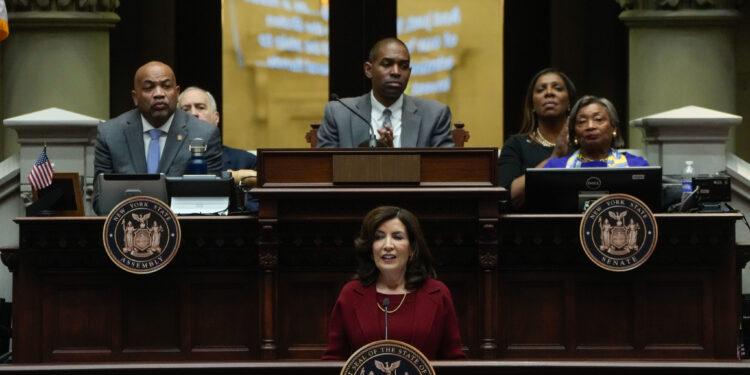New York’s education landscape is set for a big shift as Governor Kathy Hochul has signed legislation reforming the Annual Professional Performance Review (APPR) system for teachers.
The new law proposes moving away from the current evaluation method, which heavily relies on student performance in standardized tests for grades 3-8 in English and math, and a general rubric for educator ratings.
NYSUT President Melinda Person praised the law, stating, “Today, 700,000 NYSUT members are celebrating a victory that will transform classrooms across New York. After more than a decade-long fight, the state is finally returning teacher and principal evaluations to local control.”
Under the newly signed legislation, school districts and Boards of Cooperative Educational Services (BOCES) will have the authority to develop their own performance review plans through negotiations with local unions.
These new plans will not be obligated to incorporate student performance metrics.
However, all proposed plans must receive approval from the State Education Department and should align with state-mandated teaching and leadership standards.
Adam Urbanski, president of the Rochester Teachers Association, heralded the revised evaluation system as a major improvement.
Urbanski commented, “This reform allows us to implement a system that is instructive for educators, fostering their development without the constraints of a one-size-fits-all approach.”
The adjustment grants more autonomy to local districts over the evaluation process, which Urbanski argues will bring about more tailored and respectful assessments.
“Mandating a uniform system from the state level ignores the unique challenges and needs of our districts, teachers, and students. By negotiating locally, we can create a system that is rigorous yet considerate, aimed at genuinely enhancing teaching and teacher growth,” he added.
Urbanski also noted that the new system could restore older, more collaborative evaluation practices.
“In Rochester’s public schools, we can now involve not only supervisors but also distinguished fellow teachers in the evaluation process. Currently, most evaluations are conducted by individuals who have stepped away from teaching, but having current practitioners involved offers a more accurate and beneficial assessment,” he explained.









